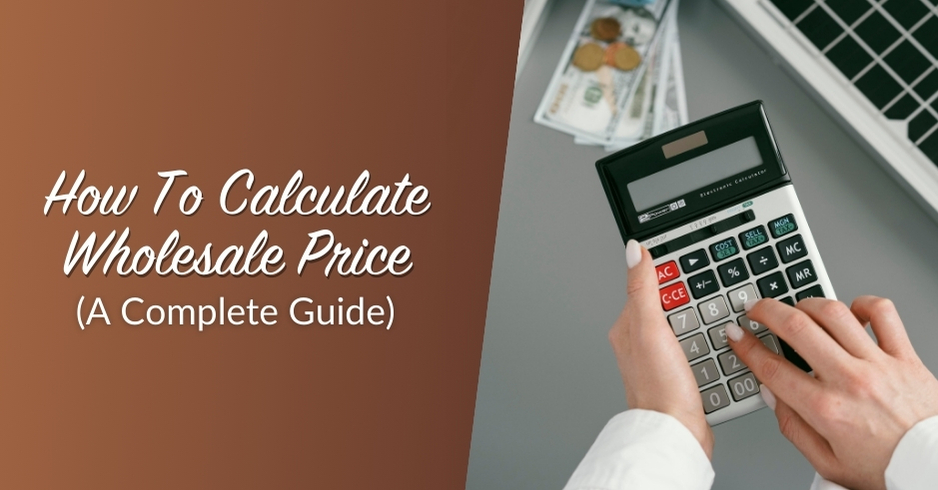The biggest mistake new wholesalers make is to think everything’s going great with their business. They tend to ignore the telltale signs that hint at a problem in one or more areas. Or worse, they have no clue what a good wholesale business even looks like.
So, we thought we’d make things a little easier for you.
This guide isn’t just for new wholesalers. You can think of it as a checklist to follow if you’re not sure where your business currently stands. If you have yet to launch your company, use the information to create a master plan that addresses all the key areas involved.
The 8 Signs of a Good Wholesale Business
1. A well-managed inventory
Having an inventory tracking system is crucial. You need to have eyes on all your merchandise real time. That means making sure the demand of your products never exceeds your available stock. It can be hard to strike this balance between supply and demand, but if you are diligent and attentive, you’ll have complete control over your inventory.
Fortunately, there are tools that make inventory management easier. You can choose from either free or pay-to-use software depending on the features you think you’ll need. For more information on inventory management software, or IMS, check out this article:
The Advantages of Using Inventory Management Software in Distribution
2. Efficient record-keeping
As much as you want to keep track of everything that happens in your distribution business, over-tracking is not a good idea.
Time is a commodity that should be used wisely. Focusing too much on where everything goes can also mean you’re sacrificing the time that should be used in running your company. Successful wholesalers know that not every little information is essential. They prioritize, organize, and move on to the next important task at hand. They may even hire a professional record-keeper if they truly want their data micromanaged.
3. A list of steady buyers
Retailers, industrial, commercial, and institutional buyers are wholesaling’s biggest clients. They are the lifeblood of the business. Successful distributors always have a list of core customers they can rely on for repeat sales. That’s why cultivating a good buyer-seller relationship is crucial to keeping your business afloat.
If you haven’t secured a steady list of buyers yet, you may find this a challenging task at first. One strategy that has worked for many wholesalers is to let the buyers find you. You can advertise, call up a few friends, or even leave your number at gatherings. Of course, you’ll still have to do something, but it’s far less tiring than researching and hunting down buyers on your own.
4. Around the clock customer service
Depending on the scale of your distribution business and the locations of clients you want to cater to, you’ll need a customer service team that’s available 24/7. Is this necessary? No, maybe not. But it is a key asset if you want to impress your wholesale buyers. A prompt response from a seller boosts the experience of your clients. This tells them you value their time and would like nothing more than help them out.
5. Diverse product lines
Diversification is key to attracting numerous clients. It helps to focus on marketing one product in the beginning. But as time goes by and your business has stabilized itself financially, it’s often wise to add more products to the list. You are able to meet the needs of more buyers, and you also safeguard your business in case clients disappear.
6. Being able to offer advice to buyers
This may be going beyond the call of duty, but that’s why it’s so powerful. As a wholesaler, albeit a successful one, you can offer sound advice to your buyers. This works especially well with retail clients. You can share with them marketing tactics you feel would work best for their niche. If they can sell your products effectively, they’ll need to order more from you. Win-win!
7. Customer acquisition strategies
You shouldn’t put a limit to the potential of your business. The most successful wholesalers certainly don’t. They look for creative ways to reach out to new buyers and they constantly plan for bigger and better deals. Also, customer acquisition strategies can serve as a fallback in case your old customers close up shop.
Another good reason for having these strategies in place is because there’s a big possibility your buyers will take their business elsewhere. This usually happens when your buyers gain enough confidence to ask for unacceptably low prices. You shouldn’t be afraid to say ‘no’ when that day comes. The bottom line is: don’t put all your eggs in one basket. Make your customer base as diversified as is wise to do so.
8. Flexibility
The number one enemy of business is narrowmindedness. Countless businesses have often failed because the people behind it cannot or will not adapt to current trends. Good wholesale businesses are constantly checking for what’s new and then applying what’s popular to see if it can work for them. For brick-and-mortar wholesalers, they’ll find their sales continually dwindling from a lack of online presence. You must always be willing to try new things, especially if it’s something your competitors are also doing.
The Takeaway
Success in wholesale marketing isn’t as elusive as you think. If you have your goals set, are willing to take risks, know how to keep records, and flexible to current happenings, you have a chance at becoming one of the largest wholesale names in the market.
What are the biggest challenges you face today as a wholesaler? Which aspect of wholesaling are you having trouble with the most? Let us know in the comments!





